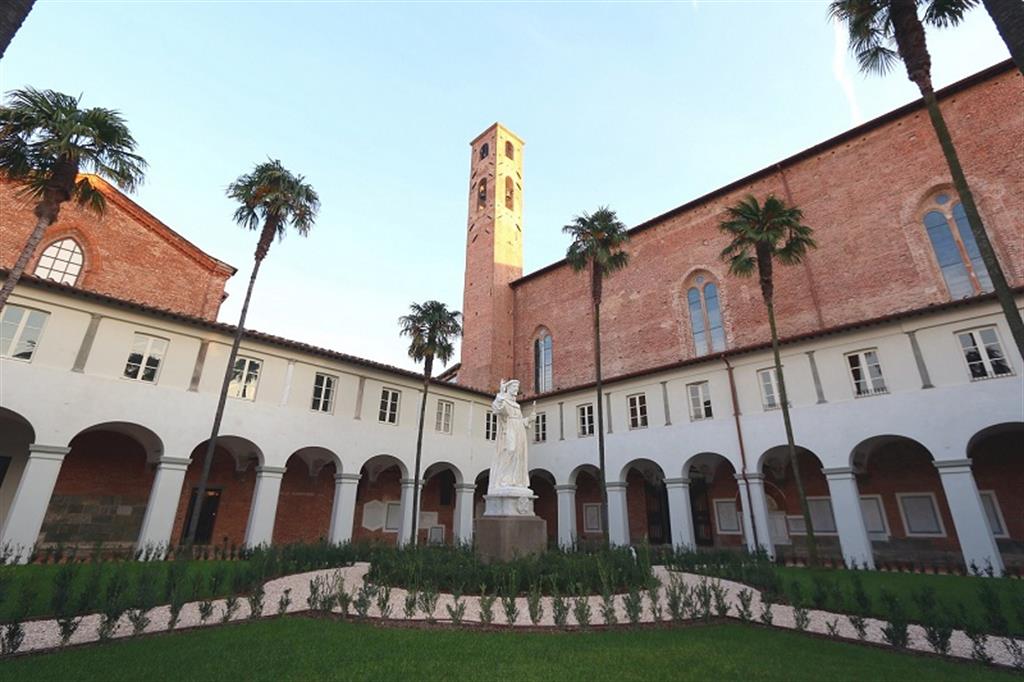A network of scientists fosters the science of ecological networks
Complex networks are any type of system where multiple elements are connected by different processes influencing the overall functioning and emerging properties. The human brain with its neurons, cities and their streets, and the internet are good examples of complex networks. As a biologist from Brazil, I study ecological trophic networks, also known as food webs, describing feeding interactions among species that transfer energy and matter across ecosystems. I am mostly interested in freshwaters, where energy is mostly made available by photosynthesis from plants and sustains a long food chain of microorganisms, insects, and fish.
In the winter of 2024 (November and December), I visited the IMT - Scuola Alti Studi - in Lucca, Italy with a TNA SoBigData ++ support. I was invited and received by Dr. Andrea Perna and his NETWORKS unit, led by Dr. Andrea Garlaschelli. I was initially introduced to the group by Dr. Daniel Perkins from Brunel University, with whom I have a long-term collaboration in freshwater ecology. This group within IMT is focused on developing and applying quantitative methods of networks to real and theoretical systems. Given that, I went to Lucca to start discussions about how to analyze and compile ecological data to be studied in rigorous ways developed by the NETWORKS unit.
I was very well received at IMT and was accommodated in the nice guest houses within the refurbished Complesso San Francesco, a former convent where IMT Lucca is currently installed. The institution has a beautiful mix between the old structure of the convent and new technological facilities. The school houses PhD students within the complex, creating an interesting and stimulating academic atmosphere.
During the first week of the visit, I attended an organized workshop on ecological networks, aligning my visit and many other researchers coming with different types of support. This workshop united theoretical ecologists, physicists, and empirical ecologists studying a variety of ecosystems and organisms, from aquatic insects in tropical streams to microbial symbiosis in temperate soils. https://ecologicalnetworks.imtlucca.it/
Dinner with colleagues from the workshop. Thierry Njougouo, Benoit Gauzens, Pietro Zgaga, Dan Perkins, Victor Saito, Andrea Perna
Group photo after the workshop.
For my second and third weeks, we started discussing how we could formalize the collaborations between my group, the NETWORKS unit at IMT and the group led by Dr. Daniel Perkins. We ended up preparing a submission for a funded working group by iDiv in Germany. This working group will meet two or three times in the next years and the aim will be to analyze the flux of energy across freshwater food webs leveraging large datasets we will compile and robust analytical network methods developed in the group. We also planned to expand the collaboration by writing grant applications to other fundings to include experiments and samples of field data. I was also lucky enough to be invited to two visits to some freshwater ecosystems in the region, within the Serchio river watershed. For that, I was accompanied for the first time by Dr. Andrea Perna, Dr. Daniel Perkins and Dr. Julia Reiss and the second time by colleagues from Pisa University and local researchers (Dr. Andrea Gini, Dr. Arianna Chines). I was very glad to be so well received by them.
Visit to local streams. Andrea Perna, Daniel Perkins, Julia Reiss and Victor Saito.
My time at IMT was very fruitful also in terms of personal experience. I was able to visit Lucca and other cities (Pisa, San Gimigniano and Volterra) with my wife, who is also Brazilian with a history of family immigration from Lucca. The Tuscany region is indeed a gem in Italy. Food and wine are great, people are warm and friendly. We indeed had a great time. I hope to get back soon and I am looking forward to keeping these collaborations going.
A visit to the Guinigi Tower in the city of Lucca.

